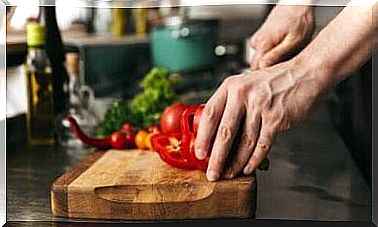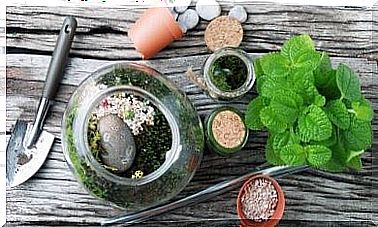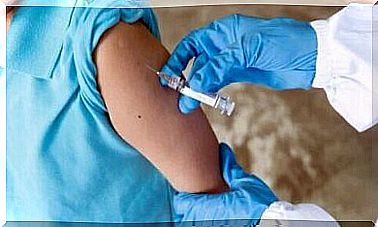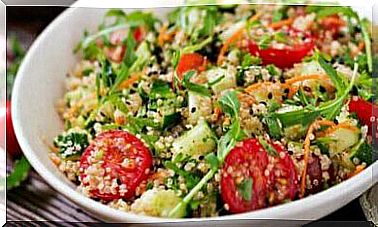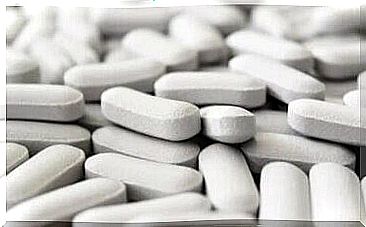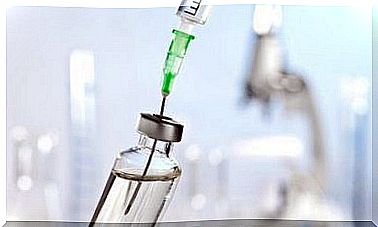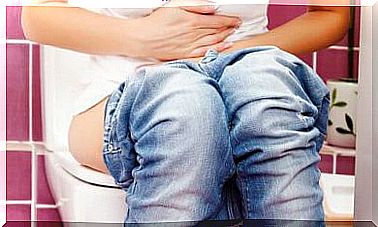How To Prevent Food Poisoning?
Proper handling and cooking of food is essential to avoid food poisoning. Do you want to know more? In this article, we detail these tips.

In this article, we will explain the precautions to take to prevent food poisoning. Over the past year, 357 people have been affected by the 21 outbreaks of food poisoning in Spain.
The most frequent cause of these poisonings was the bacteria “ Salmonella ”, the risk factor of which is the consumption of raw or undercooked eggs. During the summer period, when temperatures are higher, the probability of being poisoned by this bacteria increases.
For this reason, it is necessary to take into account a series of precautions that will guarantee health and avoid the appearance of possible food poisoning. Keep them in mind!
Keys to preventing food poisoning
According to information published in the medical journal Paediatrics & Child Health, children, the elderly, and people with weakened immune systems tend to have more problems with germs in food.
However, this same article points out that there are preventive measures that help promote the safety of the foods the whole family eats. Let’s see the most important ones below.
Cook food well
Most bacteria that cause infections or poisonings are not very resistant to heat and cold. Its ideal temperature range is quite low and generally resembles the temperature of the human body.
In this way, thorough cooking of food is a very useful tool in killing possible pathogenic bacteria. In some foods, this heat treatment is carried out in the factory itself, as is the case with milk.
However, when it comes to meat or eggs, it is the mission of each consumer to ensure complete cooking before consumption. Consuming red meat indoors involves a greater risk to health, especially if the method of preserving the meat or fish before cooking was not quite correct.
A very typical example is that of minced meat in burgers. Sometimes this meat can contain large amounts of “ E. Coli .” Bacteria . Meat must reach 71ºC indoors to ensure compliance.

Freeze the fish
Then, other pathogenic organisms such as “Anisakis” are sensitive to cold. Freezing fish that may harbor these organisms, such as hake, ensures their death. Thorough cooking afterwards to destroy any larvae will greatly reduce the risk.
It should be noted that poisoning with this organism is especially dangerous, as it can trigger a process of anaphylaxis. This is indicated by research published in the journal Internal Medicine.
Defrost in the refrigerator
Thawing foods at room temperature thus facilitates the reproduction of pathogenic organisms that can inhabit them and the hatching of eggs. In this case, it is better to use the refrigerator as part of the defrosting of the products. Another effective option can be to use the microwave for this function.
Keep raw foods separate from cooked foods
This will prevent possible cross-contamination between foods. It is also important to separate meat from fish and shellfish, both during food storage and in pre-cooking processes.
Do not store open tomato sauces for more than 3 or 4 days
A very common mistake and a source of “botulism” contamination is leaving the jars of tomato sauce open in the refrigerator for several days. These foods are a good breeding ground for “ Clostridium Botilinum “.
It is the bacteria that produce botulinum toxin (botox), which when ingested, thus produces progressive paralysis of the body and organs that triggers multisystem failure. This bacterium and its toxin are quite sensitive to heat; therefore, proper cooking will also reduce the risk of poisoning.
Likewise, it is advisable to keep tomato sauces in tightly closed jars (best vacuum-packed) and consume them within 3 or 4 days from the date of opening.
If in doubt, throw it away
If you think a food is contaminated, smells bad, or tastes rancid, get rid of it. Common sense is often enough to prevent food poisoning. Therefore, when there is any doubt that a food may be contaminated, it is best to throw it out before regretting the consequences.
Foods with a bad taste, appearance or smell are not the only ones susceptible to contamination. Those that look healthy may also contain pathogenic bacteria. This way, if you have any doubts about its conservation, or think that a product may have come in contact with a contaminated food, it is better not to consume it.
Foods likely to be contaminated
- Raw or undercooked meat and poultry.
- Raw or undercooked fish or shellfish.
- Raw or undercooked eggs.
- Raw shoots such as alfalfa.
- Unpasteurized milk and dairy products.
- Soft cheeses.
- Meat pies and pasta.
- Hot dogs, corned beef and cold cuts.
Watch your diet to avoid food poisoning
Have you also had an episode of food poisoning? Are you worried that your food is contaminated? Do not forget to apply all these preventive measures from now on. Also, if you show signs of poisoning, see your doctor as soon as possible.

